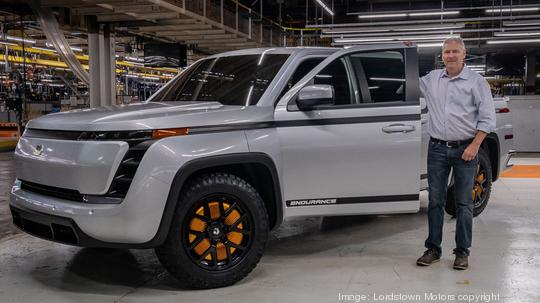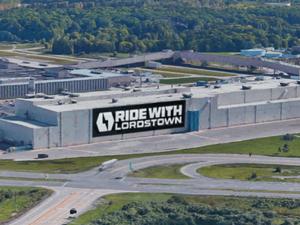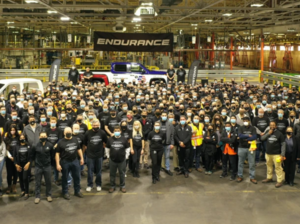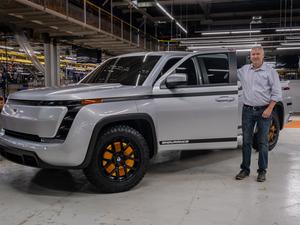
Lordstown Motors Corp. is seriously short on cash.
The electric vehicle developer near Youngstown, Ohio, has insufficient cash to begin producing and selling its Endurance electric truck for the commercial fleet market in late September as planned, according to a regulatory filing.
In addition, the production stall casts "substantial doubt" on whether the company will be able to operate for a year without a cash infusion, according to the filing.
The company's management is "evaluating various funding alternatives and may seek to raise additional funds through the issuance of equity, mezzanine or debt securities, through arrangements with strategic partners or through obtaining credit from government or financial institutions," according to the filing.
As recently as late May, Lordstown Motors said it would be able to produce only half the number of Endurance trucks as planned because of the cash shortage.
At that time, the company said it likely would spend $115 million more than expected in 2021. The company does not yet have vehicle sales.
Higher-than-expected development, testing, parts and engineering costs helped lead to the shortage, said Steve Burns, the company's CEO and chairman, during a late May conference call.
The company had cash and cash equivalents of $587 million on March 31 compared with a restated $630 million on December 31, according to the company's filing.
The startup also is competing against larger and more resourceful companies, according to a SeekingAlpha blog entry by S.J. Financial Consulting, an equities research firm.
For instance, Ford Motor Co. announced the development of its F-150 Lightning, an all-electric version of the automaker's most popular vehicle, last month.
Lordstown Motors acquired the former General Motors automobile production plant in Lordstown Village, Ohio, for $20 million in November 2019, according to the recent filing.
At the time, the acquisition was seen as a way to bring jobs back to the Mahoning Valley. GM shut its Lordstown automaking plant earlier that year at a cost of 1,500 jobs.
Lordstown Motors is one of about a dozen electric vehicle startups that went public by merging with a special-purpose acquisition corporation, according to The New York Times. Lordstown Motors went public in October.
In March, Lordstown Motors was targeted by a scathing investment report by short-seller Hindenburg Research that said the company had misled investors about its truck preorders and the progress it was making toward putting its first model into production.
A handful of shareholder lawsuits soon followed, joining a Karma Automotive LLC lawsuit alleging that Lordstown Motors "unlawfully poached key Karma employees and misappropriated Karma’s trade secrets and other confidential information," the automaker said in its filing.
The Securities and Exchange Commission began an inquiry into the company's financial reporting and corporate governance a month earlier, according to S.J. Financial. Lordstown Motors has said it is cooperating with the SEC's investigation.
Earlier this month, Lordstown Motors said it had received a delisting warning from the Nasdaq stock listing service because the company had not filed its quarterly financial report on time.
The company's shares (Nasdaq: RIDE) were down about 12% to $9.88 in early morning trading Wednesday.






